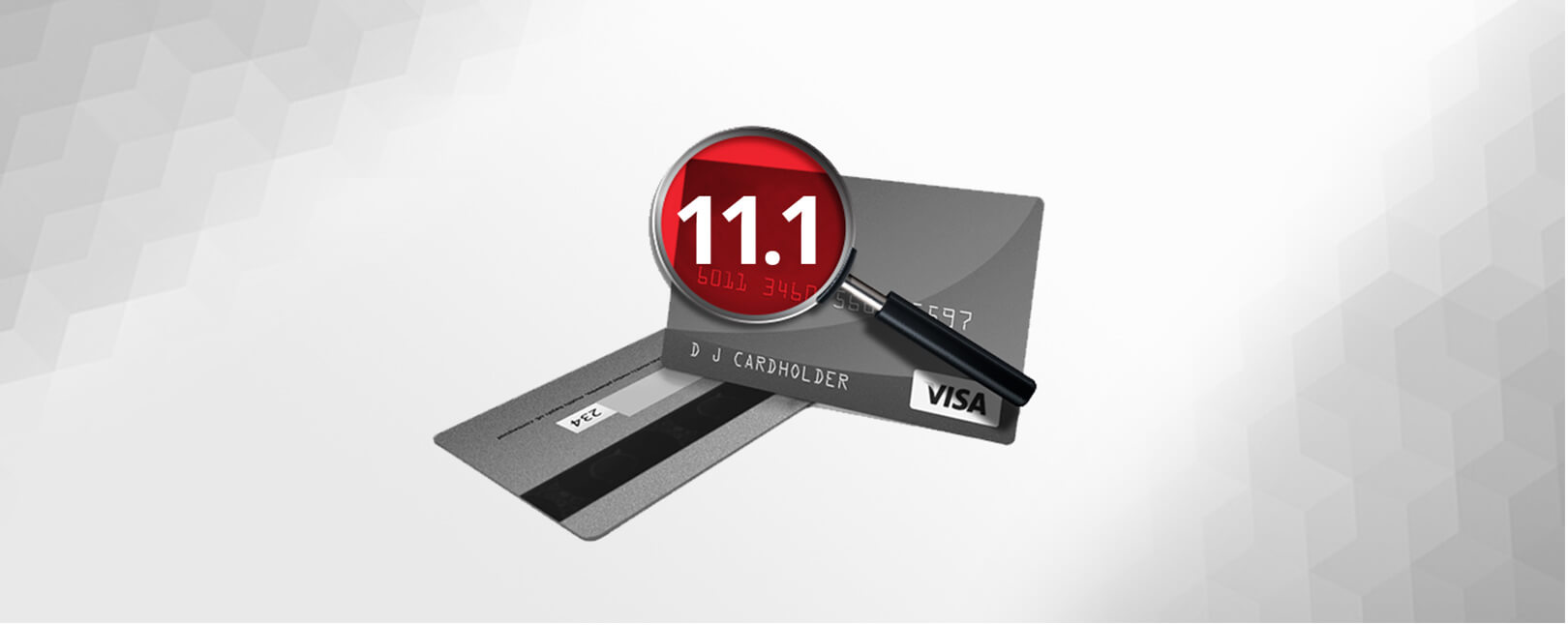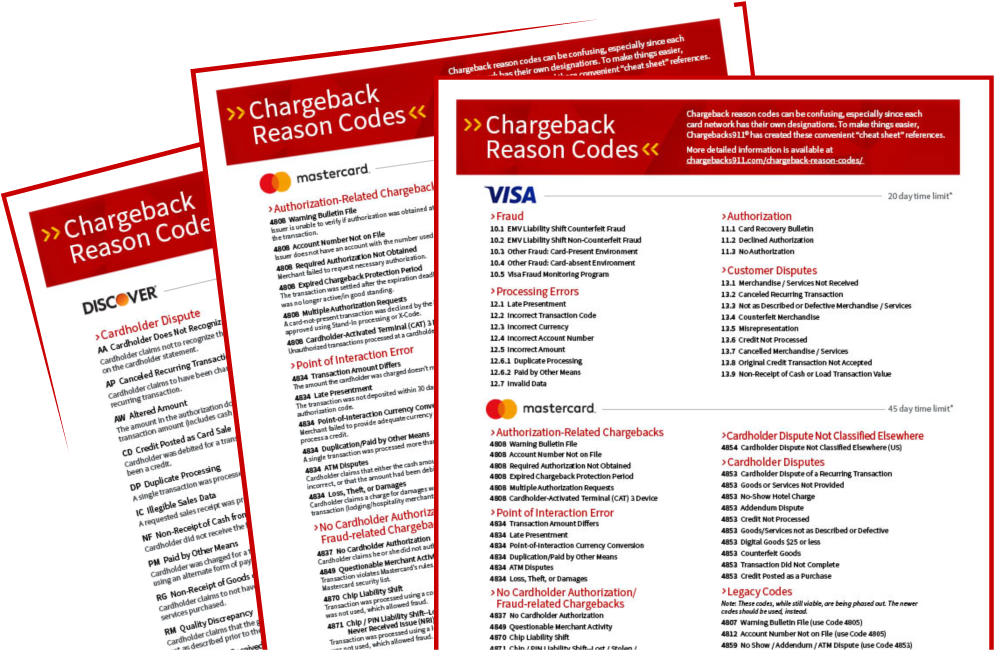Visa Reason Code 11.1: Other Fraud – Card Recovery Bulletin
For the sake of simplicity and standardization, card networks like Visa have created a breakdown of the acceptable causes for a customer to dispute a credit card transaction by filing a chargeback. Each of these causes has a designated “reason code,” and banks assign the appropriate code to each case to show the given reason for the chargeback.
That sounds simple enough, but the reality is, the given reason for a chargeback may or may not be the true reason. Plus, each card network has its own set of reason codes—which, while nearly the same in function, nevertheless differ from one another. Keeping track of all these codes, along with the best ways to either fight or prevent each one, is challenging.
With that in mind, let’s take a look at Visa Reason Code 11.1: Card Recovery Bulletin.
Reason Code 11.1 Chargebacks Are Completely Preventable.
We can show you how to protect yourself. Click to learn more.

What is Visa Reason Code 11.1?
Chargeback reason code 11.1 is an updated version of legacy reason code 70, which was phased out under the Visa Claims Resolution initiative. This code applies when a transaction was processed without acquiring authorization…but the card used in the transaction was listed in the Visa Card Recovery Bulletin (CRB).
The CRB is a guide produced by Visa that lists cards known to have been reported lost, stolen, past-due, overdrawn, counterfeit, or otherwise fraudulent. If a merchant has a transaction that feels suspicious, they can review the list for their region to discover if the card has been listed.
As a rule, it’s a good practice to secure authorization for every transaction. An authorization request will automatically tag the transaction if the card in question has been listed on the CRB. Regardless, merchants are advised to check the CRB for all transactions, as fraudulent use of a listed card could result in a chargeback with a Card Recovery Bulletin reason code; in other words, a chargeback that cannot be disputed.
Merchant Errors, Rights, & Limitations
Chargebacks of any kind are nothing but trouble for merchants…yet many chargebacks are the direct result of preventable merchant missteps. It’s crucial for businesses to recognize the common merchant errors that might trigger a chargeback.
In the case of reason code 11.1, it’s simple and straight-forward: the merchant accepted a transaction—above the business’ floor limit—without requesting authorization, and without checking the Card Recovery Bulletin. The card used in the transaction was listed on the CRB, thus the sale should have been terminated.
As mentioned earlier, the given reason for a chargeback may be far different from the actual reason. The cardholder who knowingly tries to file a chargeback under false pretenses commits friendly fraud. While banks try to investigate all claims thoroughly before processing a dispute, the meteoric rise in chargeback cases has made this extremely difficult. In many cases, it’s more efficient to simply take the customer’s claim at face value.
That said, merchants create their own issues when they ignore simple directives. This puts the cardholder in the driver’s seat. The only limitation here is the timeframe: for Visa Card Recovery Bulletin chargebacks, no more than 75 calendar days can pass between the transaction-processing date and the dispute-processing date.
Reason Code 11.1 Chargebacks: Prevention & Response
No matter how faithfully merchants follow the rules, there will always be people who attempt to take advantage of the system. Fraudsters may try to use a stolen credit card, but fraud is often attempted by the actual cardholder, using a card they know is invalid. Luckily, chargebacks from reason code 11.1 are totally preventable if the merchant follows best practices:
- Always request authorization for transactions above your floor limit; ideally, request authorization for all transactions.
- Always consult the CRB before accepting any transaction for which you have not obtained authorization
While preventative measures can significantly lower the overall volume, some illegitimate chargebacks may slip through the cracks. Merchants who have evidence that refutes a cardholder’s claim should challenge the chargeback through Visa’s dispute process. Here are some steps merchants can take to more effectively dispute chargebacks with the Visa Card Recovery Bulletin reason code:
If… |
Then… |
| The transaction was processed through an EMV-compliant terminal, or through contactless only acceptance device… | …provide evidence that the transaction took place at an EMV PIN compliant terminal. |
| You did not receive authorization for the transaction and did not consult the CRB… | …you must accept the dispute. |
| You have already processed a reversal, or issued a credit for the transaction... | …provide documentation of the credit reversal, including the amount of the credit and the date it was processed. |
| The cardholder no longer disputes the transaction… | …provide a letter, email, or other documentation from the cardholder that clearly states they no longer dispute the transaction. |
Take a Wider View
You can dispute invalid chargebacks from Visa Reason Code 11.1. However, it’s much more efficient to take a proactive stance. The same is true of the other chargeback reason codes, as well. A truly effective chargeback management strategy must encompass prevention as well as disputing cases of friendly fraud.
Chargebacks911® can help your business manage all aspects of chargeback reason codes, with proprietary technologies and experience-based expertise. Contact us today for a free ROI analysis to learn how much more you could save.










